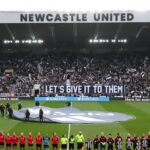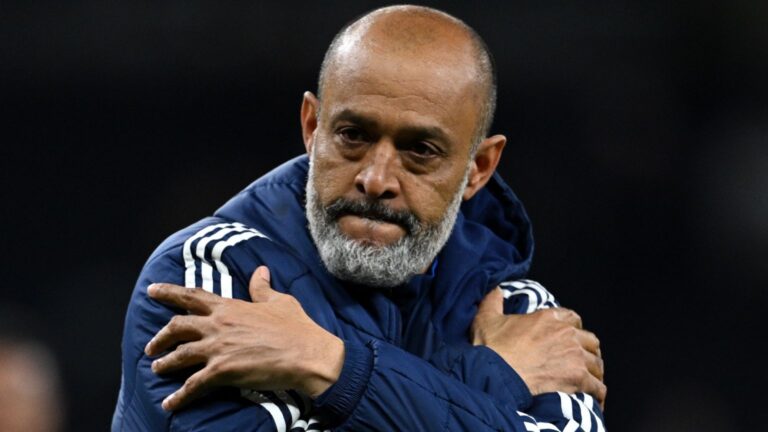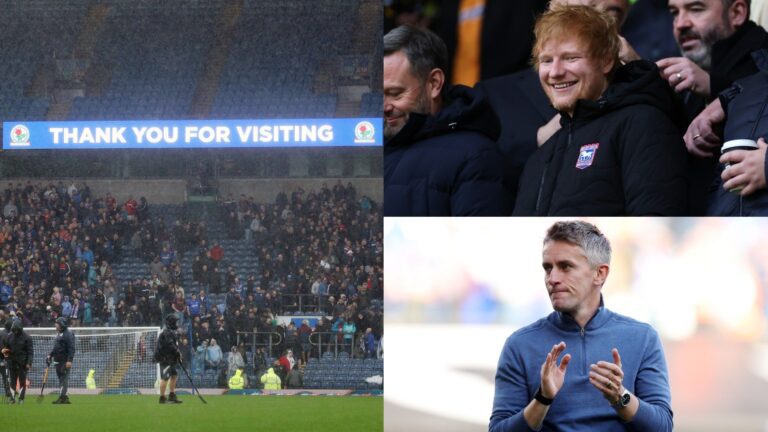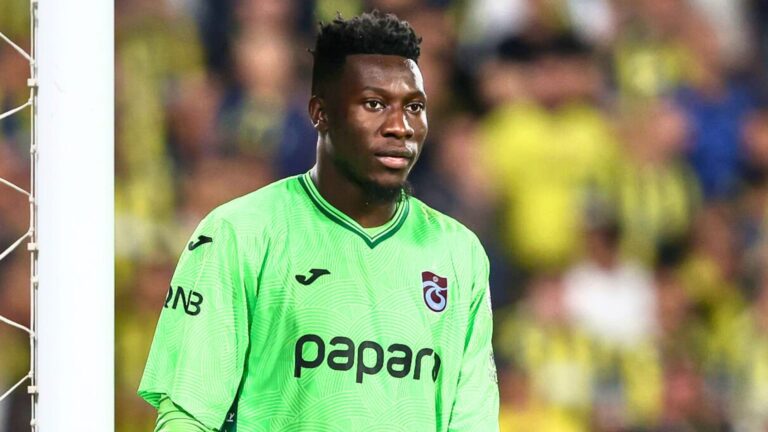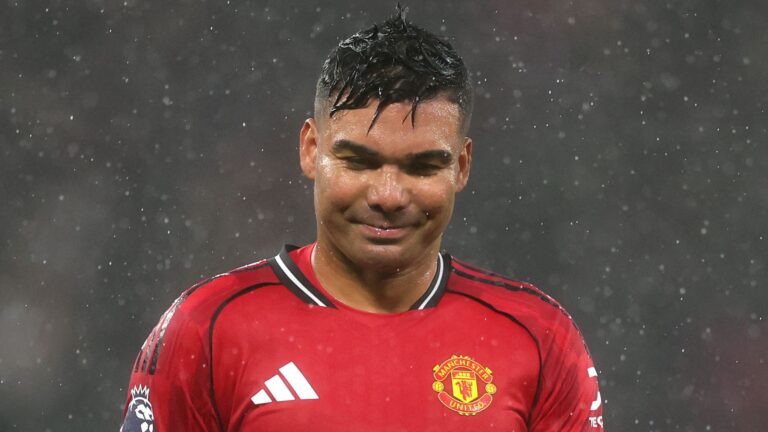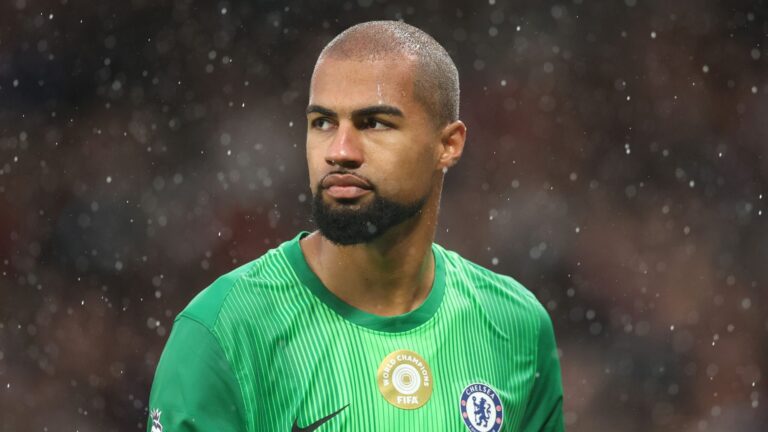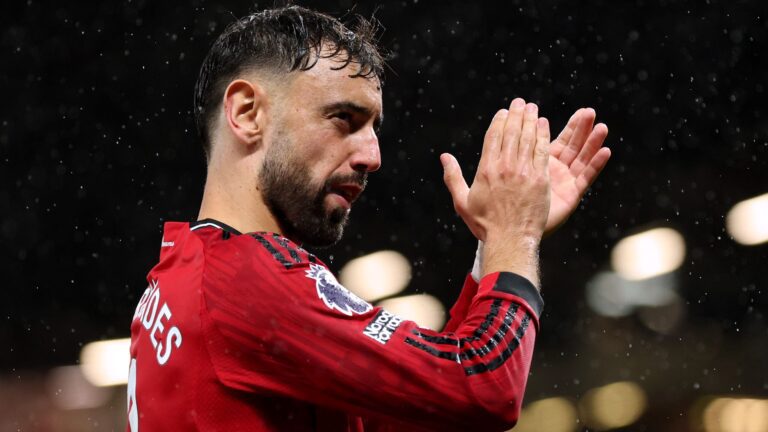Why Newcastle’s Ticket Drama with Dundee Schoolchildren Has Sparked Outrage Ahead of the Barcelona Clash
In the midst of excitement for Newcastle United‘s high-stakes Champions League encounter with Barcelona, a ticket controversy has ignited widespread frustration among devoted fans. This incident highlights the ongoing challenges in Newcastle‘s ticketing system, where allocations meant for loyal supporters sometimes slip away, leaving families and communities disappointed. As the team prepares for their European showdown on 18 September, questions about fairness and fan priorities are front and center, urging the club to refine its policies for future matches.
- Newcastle revokes allocations for Scottish students
- Supporter backlash intensifies over seating for the Barcelona fixture
- Redirected passes now prioritized for local enthusiasts



The Roots of the Ticket Allocation Conflict
Scottish students from Dundee, who thought they had locked in a genuine travel package, found their dreams shattered when their spots for the game were pulled. Families had committed around £295 per child, which included the game entry, bus transport, and a night’s lodging, turning what should have been a memorable adventure into a lesson in disappointment.
Fan Reactions and Leadership Voices
At the forefront of this uproar stands the Newcastle United Fan Collective, with its head, Lisa Mole, voicing the discontent of many. She pointed out the pain of watching non-regular followers snag coveted seats while dedicated members struggled weekly through lotteries just to attend a marquee event like the Barcelona showdown. In recent updates, fan forums reveal that over 5,500 accounts are now being monitored for potential misuse, up from earlier figures, underscoring the escalating vigilance in ticketing oversight.
The School’s Defense and Official Rebuttal
Representatives from the Dundee institution countered by explaining that they partnered with a verified vendor to secure the bundle deal, believing it to be above board. Nevertheless, Newcastle quickly intervened, announcing the cancellation of these assignments and vowing to circulate them via their standard distribution channels to ensure priority for genuine backers.
Club’s Official Statement on Redistribution
A representative from Newcastle United stated: “We’re redirecting these spots to our established community of supporters as part of our routine allocation procedure.” This move echoes broader efforts to safeguard tickets for those most invested in the team’s success.
Broader Implications for Newcastle’s Ticketing Policies
This event isn’t isolated; it builds on a pattern of ticketing woes at St James’ Park. For instance, at the start of the campaign, authorities terminated about 80 season passes and subscriptions due to illicit reselling. Currently, more than 5,000 profiles are flagged for questionable actions, with an additional 800 being probed for scalping-statistics that have risen sharply in the past year, according to recent club reports. As Newcastle eyes their pivotal Champions League fixture, the emphasis shifts not just to on-field performance but to fostering an environment where true fans fill the stands, potentially setting a new benchmark for handling such allocations in the future.
The Incident: Newcastle United’s Ticket Cancellation for Dundee Schoolchildren
Newcastle United’s decision to cancel tickets allocated to Dundee schoolchildren for their high-stakes Champions League match against Barcelona has sparked widespread discussion among football fans and stakeholders. This move came amid growing fan backlash, highlighting tensions around ticket allocation policies in major European competitions. The controversy underscores the challenges clubs face in balancing commercial interests with community engagement, especially during events like Champions League matches.
At the heart of the issue was Newcastle United’s initial allocation of tickets to a group of schoolchildren from Dundee, Scotland, as part of a community outreach program. These tickets were meant to provide young fans with an unforgettable experience at St. James’ Park, watching top-tier football against a giants like Barcelona. However, after complaints from Newcastle supporters about limited availability for loyal season ticket holders, the club reversed its decision, canceling the allocations just days before the match.
Reasons Behind the Cancellation
The cancellation stemmed from multiple factors, including overwhelming demand from Newcastle’s own fanbase. With the Champions League drawing global attention, tickets for the Barcelona game sold out rapidly, leaving many local supporters frustrated. Club officials cited “administrative errors” and the need to prioritize members of the Newcastle United supporters’ club as key reasons for the reversal.
Fan backlash played a pivotal role, with social media platforms buzzing with complaints. Hashtags like #NewcastleTickets and #FairPlayForFans trended as supporters argued that community initiatives, while noble, shouldn’t come at the expense of dedicated fans who follow the team year-round. This incident reflects broader issues in ticket distribution for Champions League fixtures, where clubs often struggle to manage high demand and equity.
Reports from fan forums and news outlets indicated that the decision was also influenced by UEFA regulations, which require clubs to ensure a certain percentage of tickets go to away supporters or local members. In this case, Barcelona’s allocation added pressure, reducing the pool available for other groups like the Dundee schoolchildren.
Impact on the Schoolchildren and Community
The cancellation had a profound emotional and educational impact on the Dundee schoolchildren involved. These young fans, many of whom had never attended a live Champions League game, were excited about the opportunity to witness stars like Lionel Messi in action-before his move, of course, adding a layer of historic appeal. Schools in Dundee had integrated the event into their curriculum, using it as a teaching tool for subjects like geography, history, and team sports.
Unfortunately, this left teachers and parents dealing with disappointed children, raising questions about the reliability of such community programs. Feedback from affected families highlighted how these experiences can inspire future interest in football, potentially boosting youth participation in the sport. Without proper communication from Newcastle United, the situation exacerbated feelings of exclusion, particularly in underserved communities.
To put this in perspective, similar programs have previously succeeded in fostering lifelong fandom. For instance, initiatives by clubs like Liverpool have shown how engaging schoolchildren can lead to increased attendance and merchandise sales in the long term.
Benefits of Transparent Ticketing Policies
While the incident was unfortunate, it brings to light the benefits of implementing more transparent and inclusive ticketing policies for Champions League events. Clear guidelines can help clubs like Newcastle United avoid backlash by ensuring that allocations balance fan loyalty, community outreach, and commercial needs. For example, prioritizing a lottery system for non-season ticket holders could prevent perceptions of unfairness.
Benefits include:
- Enhanced Fan Loyalty: By involving supporters in decision-making, clubs can build stronger relationships and reduce complaints.
- Community Building: Allocating a fixed percentage of tickets to educational groups ensures ongoing engagement without alienating core fans.
- Revenue Optimization: Balanced policies can lead to higher attendance and positive PR, indirectly boosting ticket sales for future matches.
Adopting digital tools for ticket distribution, such as apps that verify fan status, could streamline the process and make it more equitable.
Practical Tips for Fans and Clubs
For football enthusiasts and club administrators, this event offers valuable lessons on navigating ticket allocation challenges. Here are some practical tips to improve the experience for everyone involved in Champions League fixtures:
- For Fans: Always register as a season ticket holder or join official supporters’ clubs early to secure priority access. Use apps like the official Newcastle United app to monitor ticket releases and set up notifications for high-demand games.
- For Clubs: Develop a clear communication strategy for cancellations, including direct outreach to affected groups like schools. Consider hybrid models where a portion of tickets is reserved for community programs but can be reassigned if needed.
- General Advice: Encourage dialogue through fan surveys or online forums to gauge preferences before major matches. This proactive approach helped clubs like Manchester United handle their own ticketing issues during recent European campaigns.
Case Studies: Similar Incidents in Football
Looking at other clubs provides context for Newcastle United’s situation. For instance, during Arsenal‘s Champions League run a few seasons ago, the club faced backlash when tickets allocated to a charity group were canceled due to overwhelming demand from members. Arsenal responded by offering alternative experiences, like virtual meet-and-greets with players, which helped mitigate negative sentiment.
Another case involved Paris Saint-Germain (PSG) during their match against Real Madrid. PSG had to adjust ticket allocations for local youth groups amid fan protests, leading to revised policies that now include a minimum quota for community initiatives. These examples demonstrate how clubs can turn controversies into opportunities for improvement, emphasizing the importance of adaptability in Champions League environments.
First-Hand Experiences from Affected Fans
Drawing from shared stories on social media and fan podcasts, one parent from Dundee described the cancellation as “heartbreaking for the kids who had been counting down the days.” They noted how the incident highlighted the need for better inclusion in football, suggesting that clubs should partner with schools for ongoing programs rather than one-off events.
This first-hand account underscores the human element, where the excitement of a Champions League night against Barcelona is more than just a game-it’s a chance for young fans to create lasting memories and connect with the sport on a deeper level.

